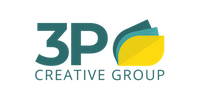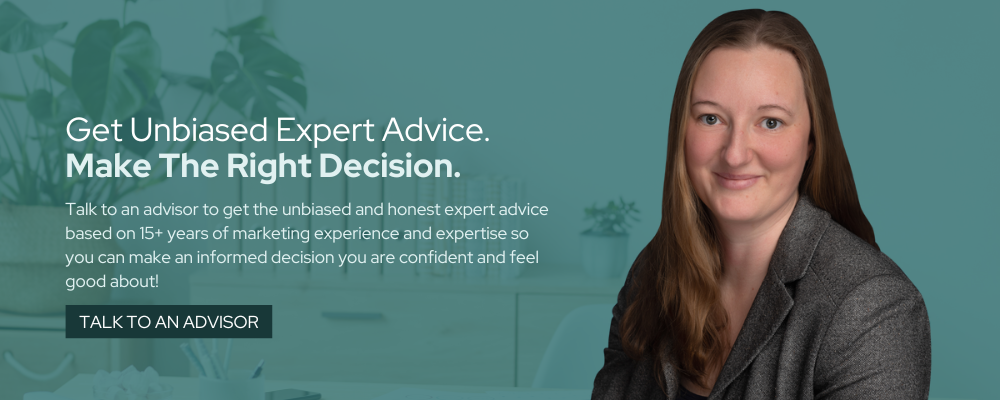Anatomy Of A Highly Effective Assignment-Selling Email [Incl. Template]
The average open rate of a one-to-one sales email is, astonishingly, only 18%! Let that sink in for a moment. As a salesperson, the odds of your prospect opening your email are less than one out of five.
As a Certified They Ask, You Answer coach, I am training sales teams in small to medium-size organizations worldwide to become world-class sales professionals. One of the first skills we always tackle is how to write more effective emails in the context of assignment selling, starting with the subject line and going all the way to increasing your response rates.
In this article, I will lay out a super simple, yet highly effective framework that you can implement right away to write more engaging, authoritative, and momentum-building emails that will accelerate your sales cycles and help increase close rates.
The Anatomy Of A Bad Sales Email
Before we dive into how to write a great assignment-selling email, let's dissect a very common email which is sent in one way or another thousands of times a day.

- Subject line: "Just checking in" or "Following up" are phrases that are generic, use weak words that diminish any authority you might have built so far, and are not enticing for the reader.
- First lines: At least the email addresses the reader by name. Good. But then it becomes very generic. The salesperson talks about the products and mentions very generic benefits. There is really nothing about the buyer's specific pain points, questions, or concerns.
- Helpful resources: It is great that the salesperson attaches helpful resources, but they are generic and do not relate to the buyer. The salesperson also doesn't say why the recipient (Tom) should read/watch them or how the content might help the recipient.
- Ending: "Looking forward to hearing from you soon" or "Let me know if you have any questions" are weak endings. The salesperson gives complete control to the buyer, placing the ball (and the responsibility for contacting the company) in the recipient's court.
6 Elements Of A Great Assignment-Selling Email
Now that we have seen what a bad email looks like, let's have a look at a well-written assignment-selling email. Below, I will look at each of the elements and explain them in more detail.

Let's dive in.
1. Subject Line
[First Name], [hooking statement/promise] (Video)
Let's start by talking about the subject line first because your readers need to be enticed by that first in order to open the email and read it. Now, as mentioned above, a normal sales email gets only 18% open rates.
You can get, on average, an additional 20 to 30 percent in open rates if you do the following:
- Use their first name. (This signals it is a personal email addressed to them, which makes them curious.)
- Hook statement/promise (This is the difficult part. You need to be concise in saying what your email is about. State what the pay-off is going to be when they read the email.)
- Use the word video. (We always recommend that your assignment-selling email includes a 1-2 minute personalized 1:1 video. If it does, include the word video in your subject line.)
2. Empathetic Statement
"[first.name],
I understand [insert what you understand] and [insert other thing you understand], whether we work together or not.”
As a salesperson, we often jump too quickly into problem solving mode and offer a solution to our buyer's problems. What we don't do often enough is genuinely empathize with our buyers. They are making a big decision that might have huge consequences financially, emotionally, or otherwise. Connor DeLaney, Director of Revenue for Imapct, talked about this in a recent podcast interview.
Instead of opening with "I hope you are doing well." or another non-statement, we can show that we understand their problems, worries, and concerns and we get the impact this decision might have on our buyer's life.
Finish by saying "whether we work together or not." This is a disarming statement. If we, as sales professionals, stop trying to sell to everyone and instead focus on educating our buyers and giving them the information they need to make the best choice for them, we can build trust.
3. What It Is
“So, I’m going to send you a [video/article/buyer’s guide] to review before our next call on [date of your next meeting].”
Then get straight to the point. Tell the recipient what exactly it is that you are sending them and that it needs to be reviewed by the next meeting. Include the date.
This sets the expectation that you have a process you will guide them through and you are not waffling around. This assignment can be a video, buyer's guide, article, whitepaper, self-assessment tool, or anything else as long as it is educational and helpful to them. Make sure the effort and time required match the stage of the customer journey your prospect is in. If you just started talking to them, a 10-minute video is fine, whereas someone about to make a decision will be happy to read a 30+ page buyer's guide.
4. Why It Matters
“This will help you [first benefit] and [second benefit], plus help you avoid the most common mistakes we see people make when wanting to [purchase your product or service].”
Now, here is where I see most people go wrong. After you have told them what the assignment is, you need to be crystal clear as to what they are getting out of it. What's in it for them? Why should they bother to read or watch the content or complete the assignment?
Make sure you address the worries, fears, and concerns they have brought up before, and tie it all back to how this assignment will help them make the right decision and avoid costly mistakes.
5. Time ROI
“It will take you about [x time] to go through but will save us [x time] when we meet and help you make a more confident decision.”
Immediately after you explain why your buyer should complete the assignment, you should state how much time they will save in your meeting, showing them that you will have more time to focus on their unique situation rather than discussing generic questions. Be sure to be realistic about how much time it will save them later on.
6. The When/Commitment
Will you commit to investing [time it will take to complete assignment] by [watching/reading] this [video/article/guide] before we meet on [date]?
If you aren’t able to complete it before then, we should reschedule to make the best use of our time.
Now, most sales people will, after the initial training, do well up to this point, but they'll get cold feet here. Telling your buyer when the assignment is due and asking for their commitment to complete the task is absolutely critical for the success of your assignment selling. If you don't do this correctly, the results will fall flat and, even worse, you might create some awkward situations.
In other words, come straight out and ask your buyer in a friendly yet confident way if they are willing to commit to the time it will take to complete the assignment by that specific date.
Then follow up with a consequence if the assignment is not completed (rescheduling the call). There is a fine line between asking confidently and sounding like an arrogant you-know-what, so tread carefully.
Assignment-Selling Email Template
Alright, are you ready to step up your assignment-selling email game and try this framework out yourself? Simply copy this template below and tweak it according to your buyer's needs.
[First Name], [hooking statement/promise] (Video)
Hi [First Name],
I understand [insert what you understand] and [insert other thing you understand], whether we work together or not.
So, I’m going to send you a [video/article/buyer’s guide] to review before our next call on [date of your next meeting].
This will help you [first benefit] and [second benefit], plus help you avoid the most common mistakes we see people make when wanting to [purchase your product or service].
“It will take you about [x time] to go through but will save us [x time] when we meet and help you make a more confident decision.”
Will you commit to investing [time it will take to complete assignment] by [watching/reading] this [video/article/guide] before we meet on [date]?
If you aren’t able to complete it before then, we should reschedule to make the best use of our time.
Your Name
Where To Go From Here
I hope you found this article and the template helpful. But I know that an email template cannot replace proper in-person sales training.
If you need to do a better job educating your buyers, accelerate your sales cycles, and improve your close rates, consider hiring a certified coach. We have helped dozens of companies do exactly this by helping them implement a solid assignment-selling process.
Share this
You May Also Like
These Related Stories

What Is Assignment Selling & How Can Your Get Started Today?

How Do Sales Teams Benefit From They Ask, You Answer?

.png?width=250&height=125&name=TrustBuilderLogoWhiteTranspBackgr(250x125%20px).png)


No Comments Yet
Let us know what you think